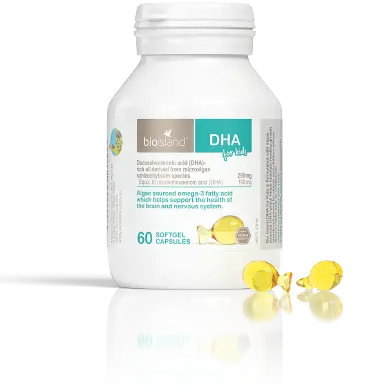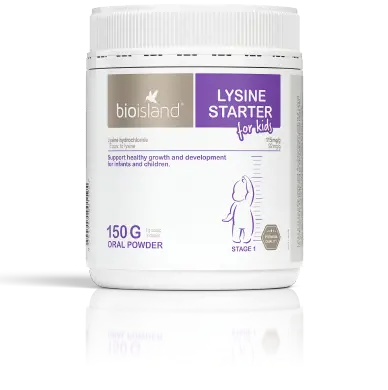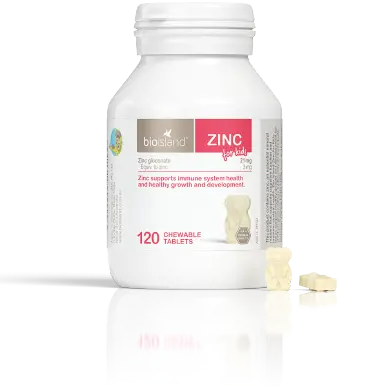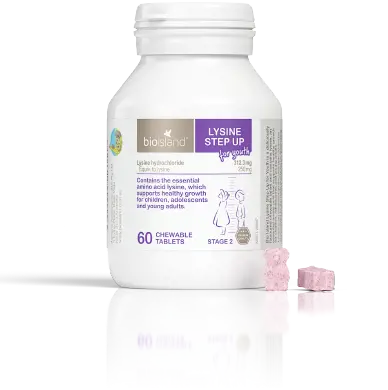
Why fibre matters for kids and how to get more in their diet.
Dietary fibre is very filling and will help keep your child’s growing body felling full for longer.
Child & Baby Health
By Bio Island Nutrition Team
The proper functioning of our digestive system is reliant on adequate dietary fibre intake. Ensuring that your child is consuming fibre in their diet and staying hydrated will keep their digestive tract moving and help to prevent (or even treat) constipation. Dietary fibre is also very filling and will help keep your child’s growing body felling full for longer. Consuming dietary fibre helps to reduce the risk of developing health complications later in life such as heart disease and diabetes.
Fibre is the part of a plant food which during digestion is not broken down by our bodies. It is important to note, that fibre is only found in plant foods and there is no fibre in any animal foods. There are three different types of fibre: insoluble and soluble fibre and resistant starch.
Insoluble fibre absorbs water and provides bulk to help produce easy to pass bowel movements. Insoluble fibre is found in wholegrain breads and cereals, the skin of fruit and vegetables, nuts, and seeds. Soluble fibre helps to slow digestion forming a soft gel in the bowel which helps to make the bowel contents more viscous. Soluble fibre is found in fruits and vegetables as well as legumes and grains such as oats. Resistant starch is found in underripe / firm bananas, boiled and cooled rice and potatoes. Resistant starch is not digested in the small intestine and assists in the production of good bacteria in the large intestine helping to relieve constipation.
The amount of dietary fibre a child should consume depends on their age and gender and the following Adequate Intake levels have been set out by the Australian Government:
|
|
1-3 years |
4-8 years |
9-13 years |
14-18 years |
|
Boy |
14g/day |
18g/day |
24g/day |
28g/day |
|
Girl |
14g/day |
18g/day |
20g/day |
22g/day |
Getting more dietary fibre into your child’s diet does not have the be a difficult task and there are plenty of foods your children probably already loves and eats that contain plenty of fibre in them.
- As the saying goes, an apple a day keeps the doctor away and with over 4g of fibre in one medium sized apple that will help keep the doctor at bay. Pack an apple into your child’s lunch box each day as a snack to boost their fibre intake.
- Pears are often the go to food when someone is suffering from constipation due to its high fibre content with 6g in 1 medium pear.
- Oat or high fibre cereal. 30g of rolled oats contains just over 3g of fibre making oats an excellent breakfast choice especially porridge during the colder months. Make a satisfying apple and pear crumble for dessert and you will be getting almost 10g of fibre.
- Wholegrain bread or cereal. Wholegrains options contain significantly more fibre compared to processed counterparts. 1 slice of wholegrain bread has approximately 1.9g of fibre whereas a slice of white bread has only 0.7g. If you are having difficulty getting your child to eat a sandwich with wholegrain bread, try making their it with one slice of wholegrain bread and the other slice as white bread. As they become more used to it you can swap to have both slices as wholegrain bread.
- Legumes: Not a favourite with most children, however if you are looking for other ways to increase their fibre try legumes such as lentils or red kidney beans. Half a cup of lentils provides 8g fibre and red kidney beans 6g. Lentils can easily be added into a Bolognese sauce or kidney beans into a taco mix and chances are your kids will not even notice!
As parents, sometimes it just takes a little bit of patience and creativity to introduce new foods into your child’s diet. Start slow and gradually increase over time as your child gets used to the new foods. Introducing too many new things at once will not only overwhelm everyone but also your toilet as well!
This information does not take into account your personal situation and is general in nature. You should consider whether the information is appropriate for your needs and seek professional medical advice.
Always consult your healthcare professional before taking any supplements or if any concerns arise.






